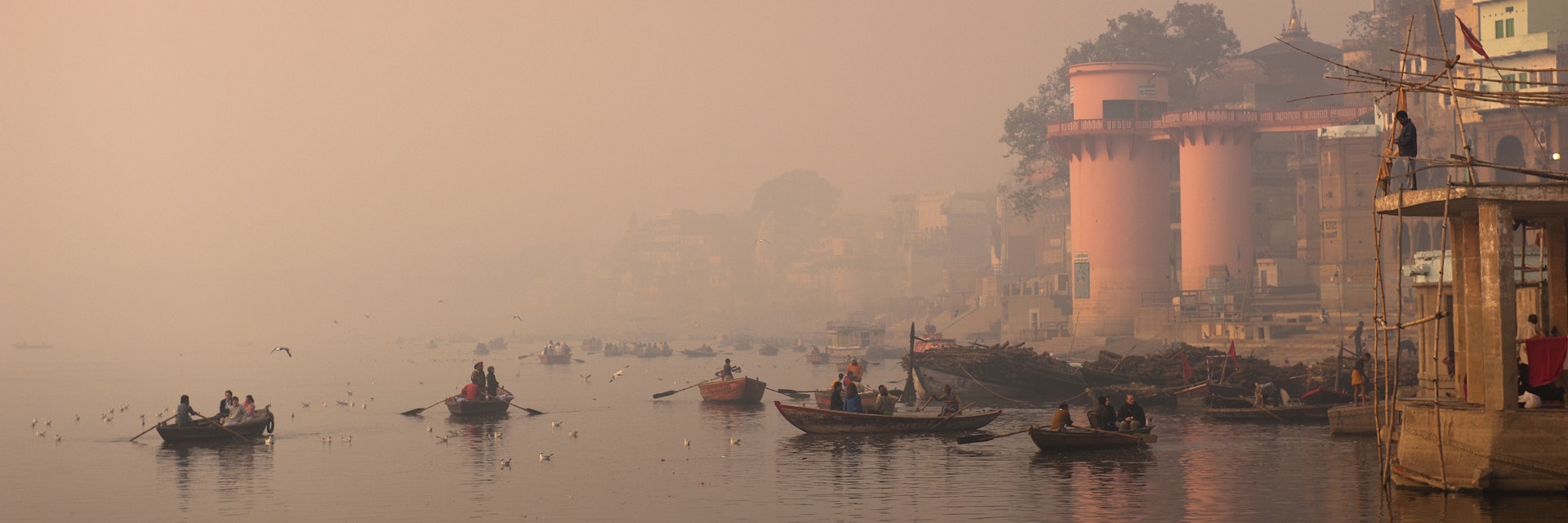Manikarnika Ghat, the main burning ghat, is the most auspicious place for a Hindu to be cremated. Dead bodies are handled by outcasts known as doms, and are carried through the alleyways of the old town to the holy Ganges on a bamboo stretcher, swathed in cloth. The corpse is doused in the Ganges prior to cremation.
Huge piles of firewood are stacked along the top of the ghat; every log is carefully weighed on giant scales so that the price of cremation can be calculated. Each type of wood has its own price, sandalwood being the most expensive. There is an art to using just enough wood to completely incinerate a corpse. You can watch cremations but always show reverence by behaving respectfully. Photography is strictly prohibited. Youโre almost guaranteed to be led by a priest, or more likely a guide, to the upper floor of a nearby building from where you can watch cremations taking place, and then asked for a donation (in dollars) towards the cost of wood. If you donโt want to make a donation, donโt follow them.
Above the steps here is a tank known as the Manikarnika Well. Parvati is said to have dropped her earring here and Shiva dug the tank to recover it, filling the depression with his sweat. The Charanpaduka, a slab of stone between the well and the ghat, bears footprints made by Vishnu. Privileged VIPs are cremated at the Charanpaduka, which also has a temple dedicated to Ganesh.
